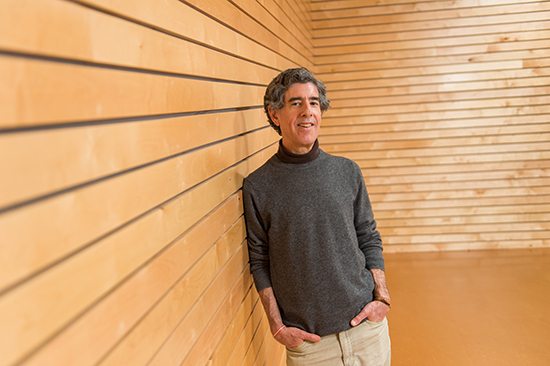Resilience and the Brain: An Interview with Richard Davidson
During the recent Mind & Life Summer Research Institute at the Garrison Institute, neuroscientist Richard Davidson presented on the neuroscience of fear and anxiety. He discussed new findings that suggest that mindfulness and other contemplative practices can make a great impact on the recovery from fearful stimuli. Before Davidson’s presentation, we spoke with him about his recent research.
Watch a video of Richie Davidson explaining how well-being is a skill.
Can you tell us a little about your work on resilience and the brain?
To paraphrase a famous bumper sticker, we all know that “stuff happens.” We all are subject to adversity. And one of the keys to resilience, if not the most important key, is the rapidity with which we recover from adversity. So we’re particularly interested in ways of measuring that ability to recover in the brain, by looking at specific neurocircuits.
From there we ask whether different kinds of meditation practices may actually modulate that very specific neural mechanism. I’m going to show some data in my presentation today, which is not yet published, which shows that particular forms of meditation may speed the recovery with which we respond to adverse events, and that that rapidity of recovery also predicts how we respond to pain. Also, it predicts certain negative emotional traits. When you recover more quickly, you are less anxious and less neurotic.
When you talk about the rapidity of recovery, what kind of timeframes are you talking about?
One of the cool things is that the timescale we measure is on the order of seconds. However, it turns out that that timescale predicts recovery on the order of minutes and hours. Later today I’ll present data from another study where we look at the relation between time on the order of seconds in the MRI scanner, and we have participants use smartphones and we do experience sampling, where we’re looking at the time course of emotional changes in real life. And it turns out that the short timescale that we measure in the laboratory actually predicts the longer timescale that we measure.
Are you measuring recovery from major traumatic experiences—for example, the loss of a loved one—or minor traumatic experience like, “Oh, I spilled hot coffee on my lap”?
Well, in the lab, we can’t create a major traumatic experience, so we do use pain. We have found that how long-term meditation practitioners respond differently to physical pain is that they recover from that pain more quickly in specific neurocircuits. They actually show, in particular parts of the pain matrix, a greater response. So it’s not that their response is attenuated. However, it’s in the recovery period, after the pain goes off, that they come right back down to baseline. Whereas untrained people perseverate in their responses, almost as if they’re ruminating about how bad this is. That’s something that the long-term practitioners don’t show at all.
Is there evidence that meditation helps with traumatic events from your deep past? Or are you only able to study recent trauma that occurs in the lab?
That’s a whole other question. I wouldn’t want to claim that the data we’re gathering on resilience, in terms of rapidity of recovery, is necessarily going to be relevant to early traumatic experience. We’ve been doing some work with post-traumatic stress disorder with returning veterans. That’s just really a different kettle of fish and requires different concepts.
What types of meditation are these long-term practitioners doing?
We’re mostly looking at mindfulness and compassion practices. And in terms of the specific measure of recovery from a negative emotional stimulus, mindfulness practice shows the strongest relationship. We also see some effects of compassion practice. And we have a third kind of practice, a concentration practice, that we’re always comparing.
Are there other contemplative practices that might be studied in the future?
Yes, there are many different kinds of practices that are designed for different kinds of people. I often tell people that the word meditation is kind of like the word sports—there are many different kinds of sports that can be performed. This is also true with meditation.
